Today marks the four-year anniversary of the brutal Islamic murder of Samuel Paty, a 47-year-old French middle school teacher who was beheaded by Abdoullakh Anzorov, an 18-year-old Russian Muslim Chechen migrant, on October 16, 2020. As he carried out the beheading, Anzorov screamed “Allahu Akbar,” the Islamic war cry.
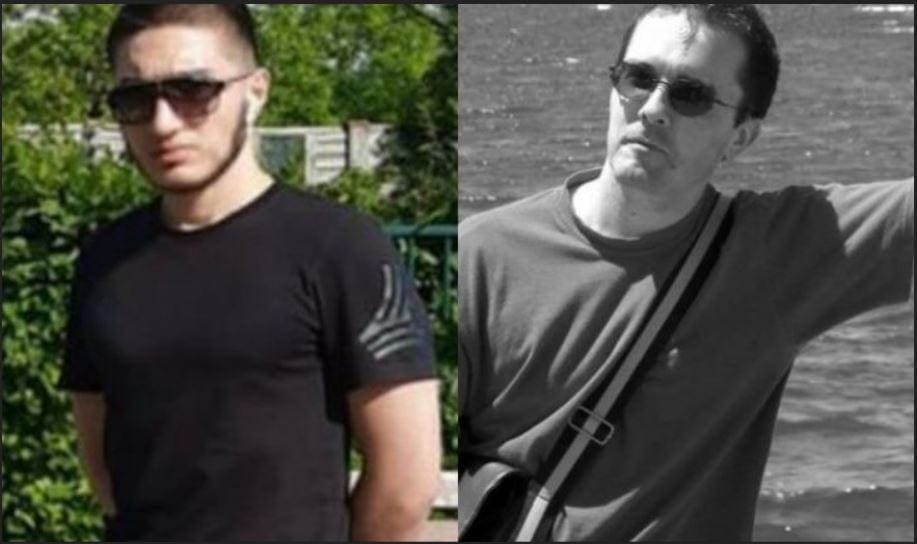
Samuel Paty’s crime? Teaching his annual course on freedom of speech, where he showed his students some of the infamous Charlie Hebdo cartoons depicting the Prophet Mohammad. These same cartoons incited the deadly 2015 Islamic terrorist attack on the Charlie Hebdo office, killing 12 people in retaliation for the satirical portrayal of Islam. Paty’s murder is part of a continuing pattern of violent reprisals against those who defy Islamic law, serving as a grim warning of the escalating threat France faces. His death remains a symbol of the state’s failure to confront Islamic terror and protect free expression.
A Sister’s Heartbreaking Testimony
On the evening of Samuel Paty’s killing, his sister, Mickaëlle Paty, a nurse anesthetist, received a chilling message from their mother: “Samuel may have been killed in front of his school. Call me back on the landline.” At the time, she was working in an operating room, and the surreal nature of the message left her in disbelief. Was her brother merely wounded, or was he truly gone? Her mind raced with dread, clinging to the hope that it was some misunderstanding.
When she arrived at the morgue, the reality of the situation shattered her. The sight of her brother’s disfigured body, his face marked with deep wounds and his decapitation concealed by a sheet pulled to his neck, was unbearable. “I didn’t recognize him,” she recalled in horror, unable to accept that the mutilated body before her was Samuel. Only when her mother screamed, “Yes, it’s him,” did the devastating truth set in. Samuel Paty had been slaughtered by a Muslim for upholding the very principles of freedom and secularism that he taught in his classroom.
The Lies, Incitement, and Accomplices Behind the Attack
Samuel Paty’s murder was not a spontaneous act of violence but the culmination of lies, deliberate incitement, and manipulation by jihadis who incited his brutal killing. It all began with false accusations from a Muslim schoolgirl, Zaina, who was not even present in the classroom when Paty showed the cartoons of the Prophet Muhammad. She fabricated a story, claiming that Paty had humiliated Muslim students by showing offensive images. Zaina later admitted to making up the story to avoid punishment for her own misbehavior.
Her father, Brahim Chnina, a known Islamic supremacist, used social media to amplify these lies. He falsely claimed in a video that Professor Paty had ordered all Muslim students to leave the classroom before the free speech lesson and that his daughter had been suspended for refusing to comply. This was a complete fabrication.
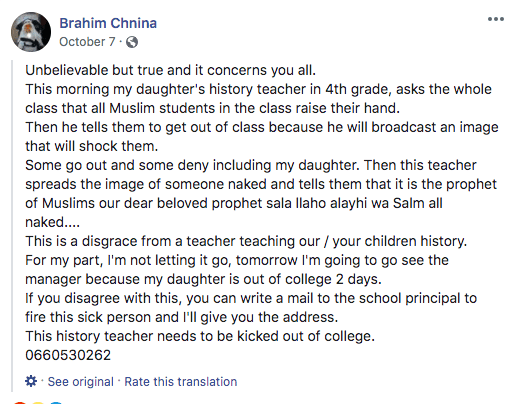
Chnina went further, accusing Paty of “Islamophobia” and labeling him an enemy of Islam. He called for action against Paty, urging Muslims to take a stand.
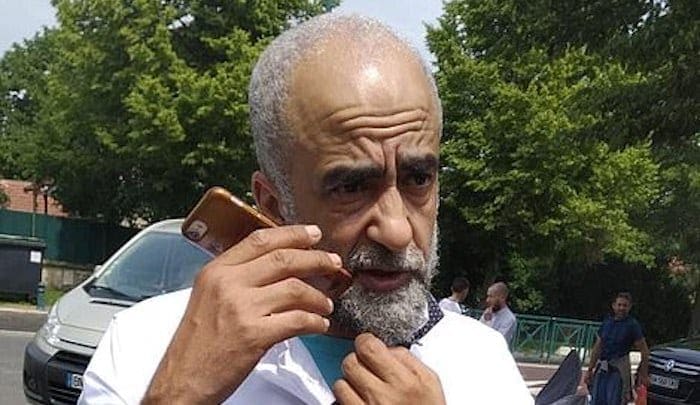
Abdelhakim Sefrioui, an Imam associated with the Muslim Brotherhood, joined Chnina’s campaign. Together, they used social media to spread their false narratives quickly, inciting rage and violence within the local Muslim community. Their incitement reached a dangerous crescendo, pushing followers to act.
(Pictured below Imam Abdelhakim Sefrioui)
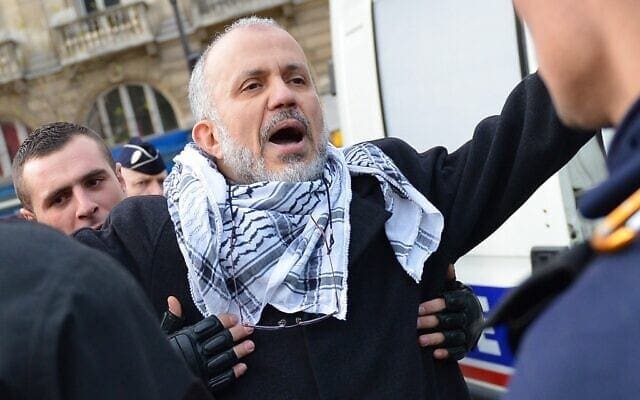
Watch one exclusively translated by RAIR of Brahim Chnina, his daughter Zaina, and Imam Abdelhakim Sefrioui.:
In one of Chnina’s personal Facebook posts, he posted the above video and revealed Samuel Paty’s name and the location of the school where he worked. He continued to spread lies, even falsely claiming that Paty had boasted to students about supporting Charlie Hebdo. In one of his posts, Chnina urged those who love the Prophet Muhammad to take action, saying, “You have his address and the teachers, demand he stop.” This public exposure of Paty’s identity led to a flood of threatening calls to the school.
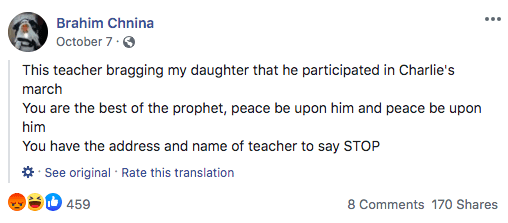
According to a student, Professor Paty was being harassed and threatened:
And the more the days went on, the more he was harassed by students and outside of college. He had a lot of death threats. A lot of people said they were going to kill him, etc. But we didn’t want to believe it. We said to ourselves that it was not possible that this could happen.
Muslim organizations and many mosques also broadcast the calls of violence by Chnina and the Imam towards the professor. Below is just one example of a French mosque (Great Mosque of Pantin) that posted Ibrahim’s video on its social media along with the name of the professor and the college where he practiced. A preacher from the mosque was taken into custody as part of the investigation into the beheading of Samual Paty. The mosque removed its post, which is captured below.
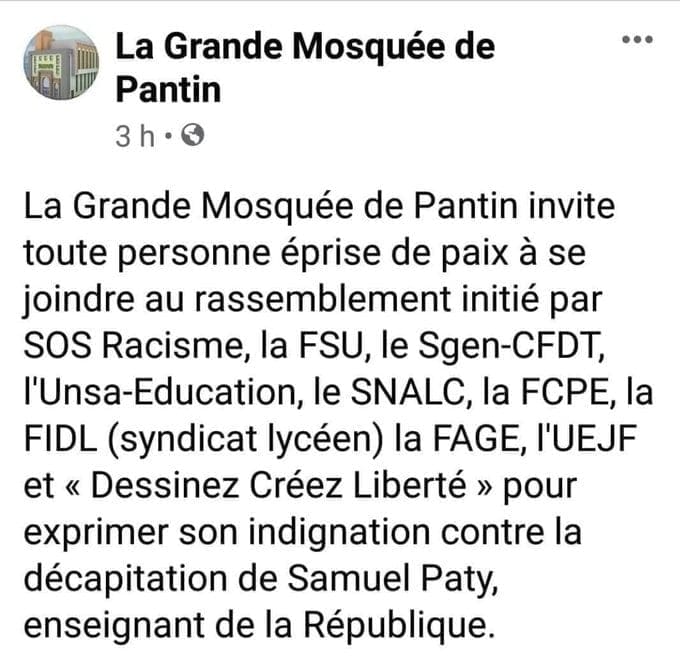
The falsehoods and incitement quickly reached Abdullakh Anzorov, an 18-year-old devout Muslim migrant. Motivated by his strict religious beliefs and commitment to enforcing Islamic law, Anzorov felt compelled to fulfill what he saw as his “religious duty.” Under Sharia, blasphemy or insults against the Prophet Muhammad are punishable by death—a doctrine rooted in both the Quran and Hadith.
Within two weeks of Chnina and Sefrioui’s campaign, a fatwa-like decree had been placed on Samuel Paty. Anzorov contacted Chnina and the Imam to “inquire” about Paty’s actions and to confirm the narrative being spread. The campaign of harassment, defamation, and doxing ultimately led to Paty’s tragic jihad murder.
On October 16, 2020, Anzorov arrived at Paty’s school and waited for hours, speaking to students and asking them to point out Paty. Aware of Anzorov’s intent, several Muslim students identified Paty without remorse. These students were later charged with “non-denunciation of a criminal,” yet received lenient punishments—reprimands and mandatory courses on secularism and tolerance, the very values Paty had lost his life defending.
Anzorov then chased Paty down, stabbed him repeatedly, and decapitated him in broad daylight. In a final grotesque act of jihadist terror, Anzorov posted photos of Paty’s severed head online. He was shot and killed by police shortly after the attack. It is worth noting that after Anzorov was killed, he was buried with “honors” in Chechnya.
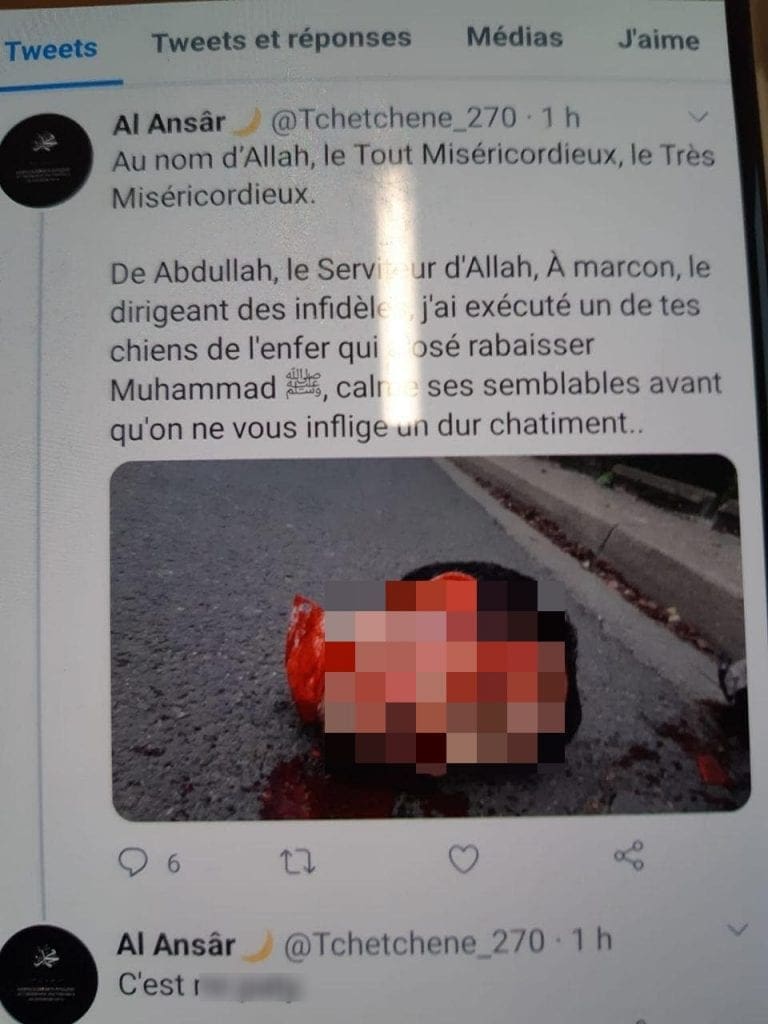
Systemic Failures that Led to Paty’s Death
Despite Samuel Paty and his murderer Abdoullakh Anzorov being known to authorities—Anzorov had been flagged in police databases as a radicalized individual—no effective measures were taken to protect the teacher. As mentioned above, on the day of the attack, Anzorov loitered outside Paty’s school for hours, even enlisting students to help identify the teacher, all without intervention from law enforcement. This glaring oversight illustrates a profound breakdown in security protocols and highlights the French state’s reluctance to take decisive action in the face of growing Islamic threats.
Paty’s family has since voiced their frustration, asserting that the state failed in its duty to protect him. They have filed lawsuits against both the Ministry of National Education and the Ministry of the Interior, accusing the government of “failure to assist a person in danger” and “failure to prevent a crime.” Paty’s relatives are seeking answers as to why the state did not respond appropriately despite the known threats and how such gross negligence was allowed to persist.
The family’s legal actions against the state highlight the broader systemic failures. They argue that French authorities failed to implement necessary security measures and allowed the fabricated accusations by Brahim Chnina and his daughter to spiral out of control, ultimately provoking the murderous attack. Moreover, they demand accountability from the state for not publicly countering the lies spread by the students, which further inflamed the situation.
Adding to the gravity of the case, the long-awaited trial of Brahim Chnina and Abdelhakim Sefrioui, who have been charged with “incitement to murder,” is scheduled for November 2024. This trial, which also includes six other individuals connected to the murder, is expected to delve into broader issues of complicity and terrorist association. The outcome will not only determine the fate of the accused but will also serve as a critical test of France’s capacity to confront and dismantle Islamic networks that continue to pose a threat to its secular values and public safety.
The Terrorist’s Refugee Background
Abdoullakh Abouyezidevitch Anzorov, the 18-year-old Chechen Muslim who brutally murdered Samuel Paty, was born in Moscow, Russia. In March 2020, upon turning 18, Anzorov was automatically granted a residence permit, allowing him to legally stay in France until 2030.
Anzorov’s family had originally applied for asylum in 2008, seeking political refugee status. However, their application was denied by the state. In 2011, for reasons that remain unclear, a judge from the National Asylum Court overturned the decision, granting the family asylum and allowing them to stay in France. If the original ruling had been upheld, Anzorov’s family would have been deported, and Samuel Paty would likely still be alive today.
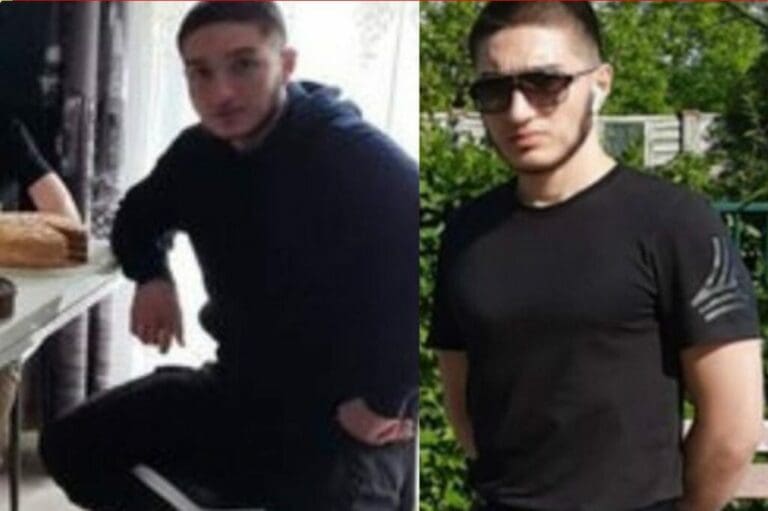
Anzorov was already known to authorities from a young age. As a minor, he had a record for “degradation of public property and violence in groups.” He was listed as a member of a gang in Éragny, a northwestern suburb of Paris. French reports also indicate that Anzorov had connections with a known radical jihadi within this gang.
Anzorov’s neighbors and acquaintances described him as being “immersed in his religion [Islam],” showing clear signs of radicalization. Despite this, questions remain as to whether police or intelligence agencies had investigated the mosque he attended or the imams he might have studied under.
Among those arrested for aiding and abetting Anzorov were his parents, 17-year-old brother, and grandfather. The family originates from Chechnya, a region in Russia governed by Sharia, notorious for producing many jihadi terrorists, including the perpetrators of the 2013 Boston Marathon bombing. Chechnya has also become infamous for its persecution of gays, with widespread reports of torture, imprisonment, and even executions based on Sharia, which prescribes the death penalty for homosexuality.
It remains uncertain whether French authorities made any effort to investigate the Anzorov family’s beliefs before granting them asylum. Were they asked about their beliefs on freedom of expression, gays, Christians, Jews, or any other values fundamental to the French Republic? Or were these crucial questions deliberately avoided to prevent accusations of Islamophobia? Perhaps French officials feared that raising such concerns would result in the same fate that befell Samuel Paty—decapitated in the streets for daring to question Islam.
The Spread of Islamic Terror in France
The murder of Samuel Paty is emblematic of a growing trend of Islamic terror that has gripped France. Radical Islamic networks, including the Muslim Brotherhood, use mosques, schools, and social media to target and radicalize young Muslims, pushing them to reject secularism and embrace Sharia over the French constitution. Social media, in particular, has proven to be an effective tool for recruitment and incitement, as seen in the rapid spread of false accusations by Brahim Chnina against Paty.
A 2020 study revealed that 74% of French Muslims under the age of 25 prioritize Sharia law over French law, with 9% expressing sympathy for the motivations behind Paty’s murder. This alarming generational shift underscores the widening divide between French secularism and Islamic law, driven by Muslim leaders who instruct their followers to resist integration into the values of the Republic.
France’s open-border policies have exacerbated this problem. Every year, hundreds of thousands of immigrants from Muslim-majority countries enter France, often bringing with them a worldview that prioritizes Sharia over French law. This influx has led to the establishment of hundreds of no-go zones, where French law is seldom enforced, and Islamic supremacy flourishes.
Since the 2015 Charlie Hebdo attacks, the repercussions for those who criticize Islam in France have been severe, ranging from assassination attempts to widespread intimidation. Fear has prompted many French institutions and companies, like Evian, to resort to self-censorship, worried about Muslim retaliation. The survivors of Charlie Hebdo continue to live under 24-hour police protection, including individuals like Laurent Sourisseau and Zineb el Rhazoui. In France, teachers, intellectuals, LGBT activists, and public figures have also become frequent targets of death threats from Muslims.
For instance, Didier Lemaire, a teacher in Trappes, was forced to leave his profession after being threatened for honoring the memory of Samuel Paty. In Grenoble, two professors were placed under police protection after being labeled as “Islamophobes” by an Islamo-leftist student group. Similarly, French teen Mila, who criticized Islam, has faced years of rape and death threats, requiring her to live in protective custody. Public figures like Eric Zemmour, Michel Houellebecq, and Frédéric Haziza also live under constant police guard for daring to speak out against the growing influence of Islam in France.
As Islam tightens its grip on French society, the threat to freedom of speech and secularism continues to grow. The Kouachi brothers, who massacred Charlie Hebdo journalists in 2015, not only silenced those they killed but have succeeded in imposing Sharia-based fear on French society, forcing it to submit to Islamic punishments.
France at a Crossroads: Submission or Resistance?
As we mark the four-year anniversary of Samuel Paty’s brutal slaughter and decapitation, France faces a defining moment. His murder is a grim reminder of the growing threat—not from isolated acts of violence but from an organized effort to impose Islam on France. This conflict is not about peaceful coexistence; it’s about submission.
Devout Muslims aim to replace French secularism with Sharia law, and the state must decide: will it defend its values, or bend to the demands of Islam? As columnist Ivan Rioufol warned, “Sleepwalking leaders must wake up… Otherwise, the French will have no choice but submission or civil war.”
Paty’s murder is part of a broader war against freedom and secularism. Violence, intimidation, and political pressure are increasingly used to push France toward Islamization, with those resisting becoming targets. The growing attacks on free speech and the state’s reluctance to confront these threats have emboldened those dismantling the Republic from within.
France is now at a crossroads: it must choose between resisting the imposition of Islamic law or allowing itself to be transformed. This battle is not just about one teacher’s death—it is about the future of France as a free, secular nation. Without decisive action, the principles Samuel Paty gave his life defending will be lost.
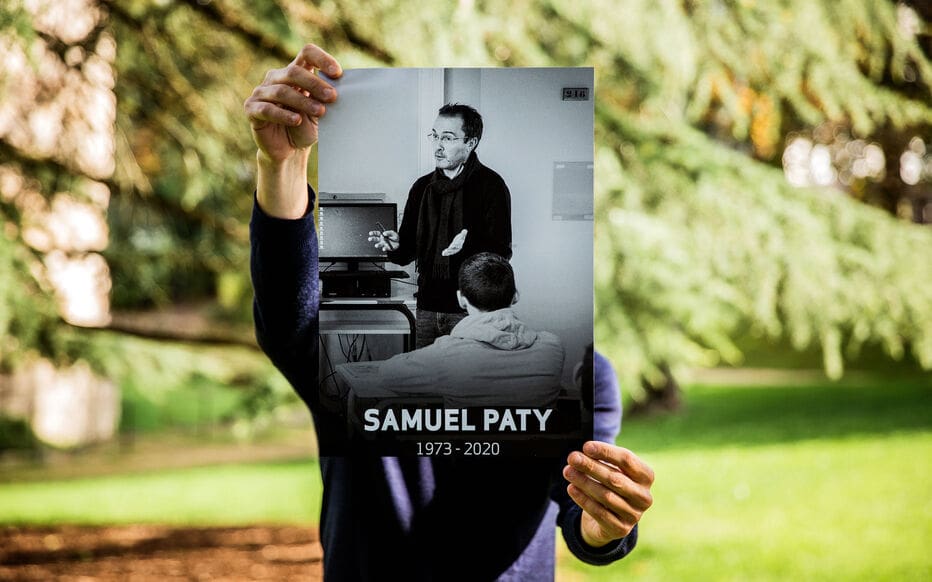

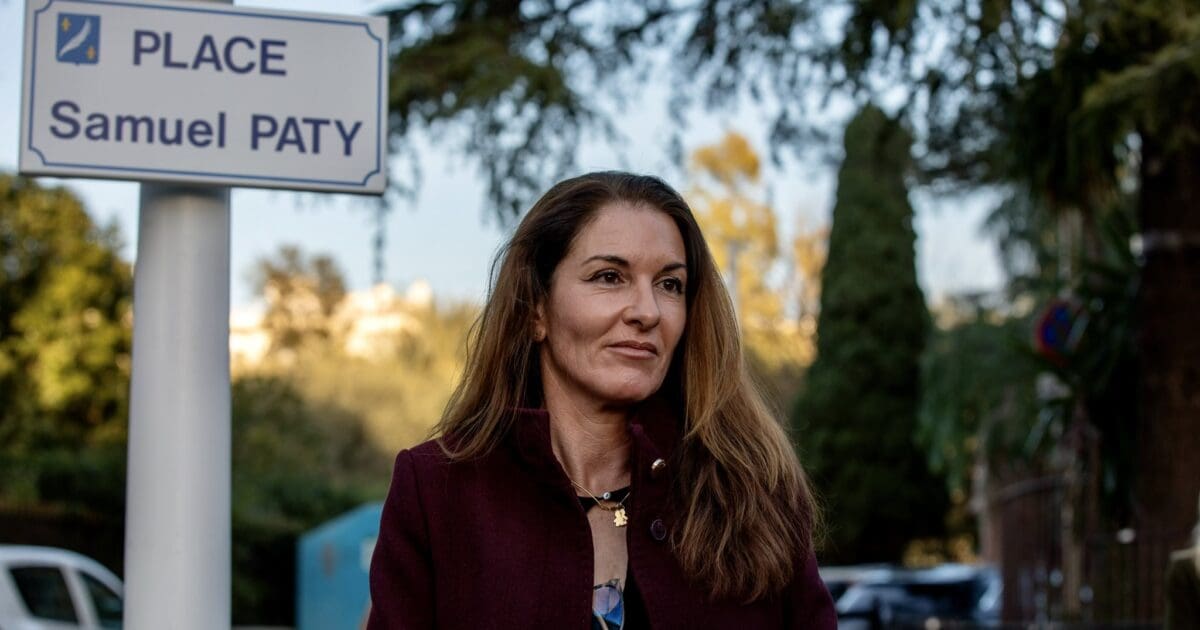


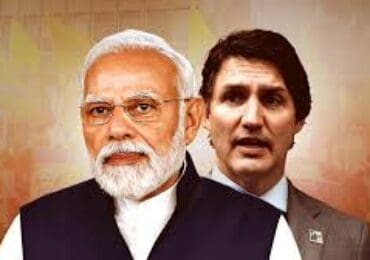
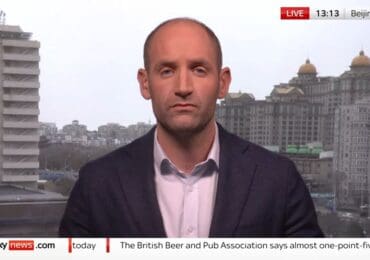
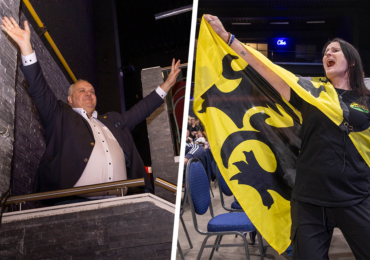



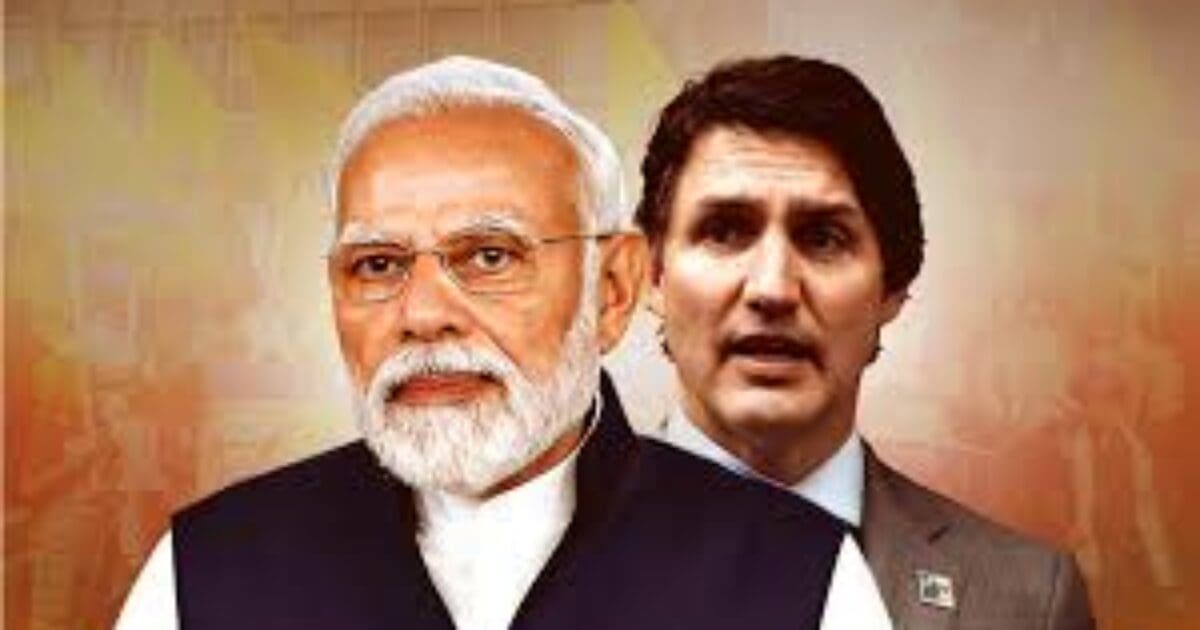
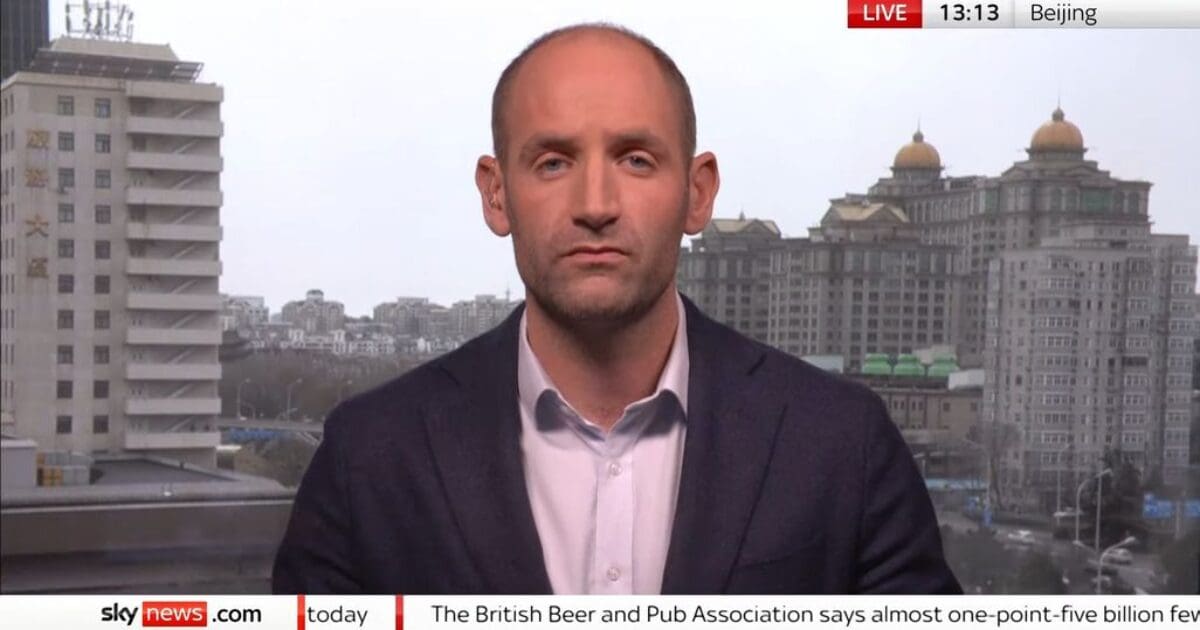
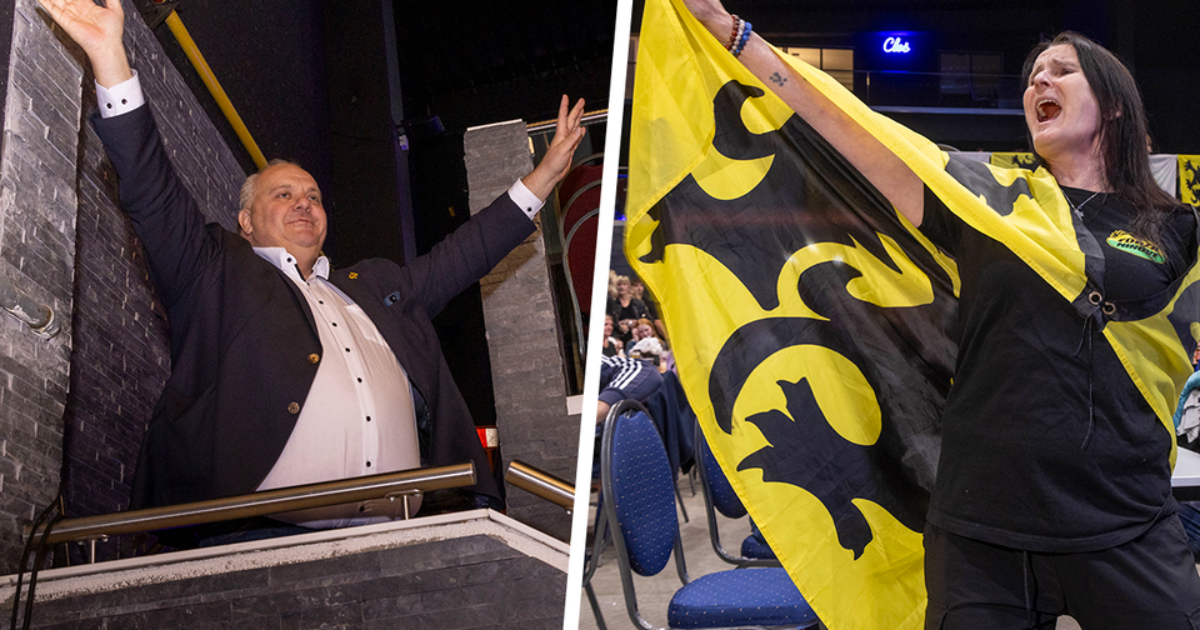
Add comment